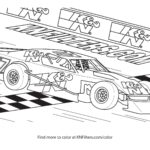A document designed to assist individuals in tracking their progress visiting Major League Baseball ballparks, available at no cost and easily formatted for printing, serves as a personalized guide for baseball enthusiasts. This tool typically includes a list of all MLB stadiums, often with fields to mark completion or record specific details of each visit, such as game scores or dates.
Such a resource offers several benefits to avid baseball fans. It provides a tangible way to document and celebrate their stadium experiences. Beyond simple record-keeping, it enhances the overall experience of ballpark visits. The creation and distribution of these tools reflect the passion and dedicated following surrounding baseball, with online communities and fan groups often sharing custom versions and tips for maximizing stadium visits.
The following sections will delve into the criteria of what constitutes an effective checklist, locations where such checklists can be found online, and potential customizations that users may find beneficial in creating a more personalized and valuable resource for their baseball stadium adventures.
1. Stadium data
The provision of accurate stadium information is foundational to the utility of any complimentary ballpark tracking document. Without verified stadium data, including the current name, city location, and potentially GPS coordinates, the checklist is rendered unreliable and fails to serve its primary function of guiding and documenting a fan’s ballpark visits. A mistake in stadium data directly undermines the purpose of the tool.
An illustration of the importance of precise stadium data can be seen when a team relocates or renames its stadium. If a baseball stadium checklist lacks updated information, for example, continuing to list “AT&T Park” instead of “Oracle Park” for the San Francisco Giants, it causes confusion and inaccuracy for the user. Similarly, if the checklist contains an outdated address, it could lead a traveler to the wrong location, disrupting their travel plans. Such errors negate the benefit of having a checklist at all.
In summation, meticulous attention to stadium data is critical for the effectiveness of a readily accessible baseball stadium checklist. This accuracy ensures that fans can confidently use the tool to track their ballpark journeys, and serves as a trustworthy record of their baseball experiences. Maintaining up-to-date stadium information is an ongoing challenge, but it is essential for preserving the value of this resource for baseball enthusiasts.
2. Printable format
The characteristic of being in a printable format is fundamental to the utility of a baseball stadium tracking document intended for complimentary access. This feature enables the checklist to transcend digital confines, becoming a tangible instrument for documenting baseball experiences in real-time, irrespective of internet availability or device compatibility.
-
Portability and Accessibility
The essence of a checklist’s value lies in its portability. A physical document, easily carried in a bag or pocket, allows for immediate notation at each stadium visited. Unlike a digital checklist confined to a smartphone or tablet, a printed version circumvents technological limitations such as battery life, internet connectivity, and device compatibility. This inherent accessibility is paramount for users who may prefer or require a non-digital medium for record-keeping.
-
Ease of Use for Data Entry
A printable format readily facilitates manual data entry. Users can quickly record details such as the date of the visit, the opponent team, and personal observations directly onto the checklist. This tactile interaction allows for a personalized and immediate connection to the documented experience. Furthermore, it avoids the potential distractions and complexities associated with digital interfaces, focusing instead on the core activity of recording and commemorating the stadium visit.
-
Customization and Personalization
The format allows for user modification and personalization beyond the digital realm. A user can physically highlight completed stadiums, add stickers or photographs, or write extensive notes in the margins, transforming the checklist into a scrapbook-like memento of their baseball journey. These personalized touches are often difficult to replicate in a digital format, enhancing the sentimental value of the printable checklist.
-
Archival Qualities
A hard copy possesses inherent archival qualities. Unlike digital files that may become corrupted or obsolete due to technological advancements, a physical checklist, when properly stored, can endure for decades. This longevity ensures that the document serves as a lasting record of baseball fandom, potentially passed down through generations. The tangible nature of the printed format contributes to its enduring value as a physical representation of personal experiences and memories.
In conclusion, the printable format is not merely a feature of a readily accessible baseball stadium checklist; it is intrinsic to its function and its capacity to enhance the user’s experience. By offering portability, facilitating ease of use, enabling customization, and providing archival qualities, the printable nature elevates the checklist from a simple list to a treasured artifact of baseball fandom.
Tips for Maximizing a Ballpark Checklist
The effective utilization of a baseball stadium visitation tracking document requires strategic planning and attention to detail. The following guidelines will enhance the user’s experience and maximize the value of the checklist.
Verification of Data
Prior to printing and commencing usage, ensure all stadium information is accurate and up-to-date. Consult official MLB sources or reputable baseball websites to confirm stadium names, addresses, and any recent changes to ballpark details.
Personalization of the Checklist
Customize the checklist to reflect individual preferences. Consider adding columns or sections for recording specific details such as game scores, memorable moments, or travel companions. This personalization transforms the checklist into a unique record of baseball experiences.
Strategic Trip Planning
Utilize the checklist as a planning tool for future baseball-related travel. Identify geographically clustered stadiums to optimize travel routes and minimize transportation costs. Prioritize visits to stadiums that may be slated for demolition or renovation to ensure a comprehensive ballpark experience.
Real-Time Documentation
Record information during or immediately following each stadium visit. This ensures accuracy and captures the immediacy of the experience. Waiting too long to document a visit can lead to inaccuracies or loss of detail.
Checklist Archiving
Upon completion, preserve the checklist as a tangible record of baseball fandom. Consider framing the completed checklist or storing it in a protective sleeve to prevent damage and ensure its longevity as a keepsake.
Effective implementation of these strategies will transform a basic checklist into a valuable tool for documenting and enhancing the pursuit of baseball stadium visitation. The consistent and thoughtful application of these principles will ensure that the checklist serves as a lasting memento of baseball experiences.
The concluding section will summarize the core benefits and ongoing utility of a strategically employed checklist in pursuit of comprehensive baseball fandom.
Conclusion
The exploration of an mlb stadium checklist printable free reveals its functionality as a tool for organizing and documenting visits to Major League Baseball ballparks. Its value stems from its accessibility and adaptability. A carefully curated and diligently maintained checklist serves as a personal archive of baseball experiences.
The continued relevance of an mlb stadium checklist printable free underscores the enduring appeal of physical records in a digital age. Baseball enthusiasts can find it as a tool for recording their baseball journeys.









